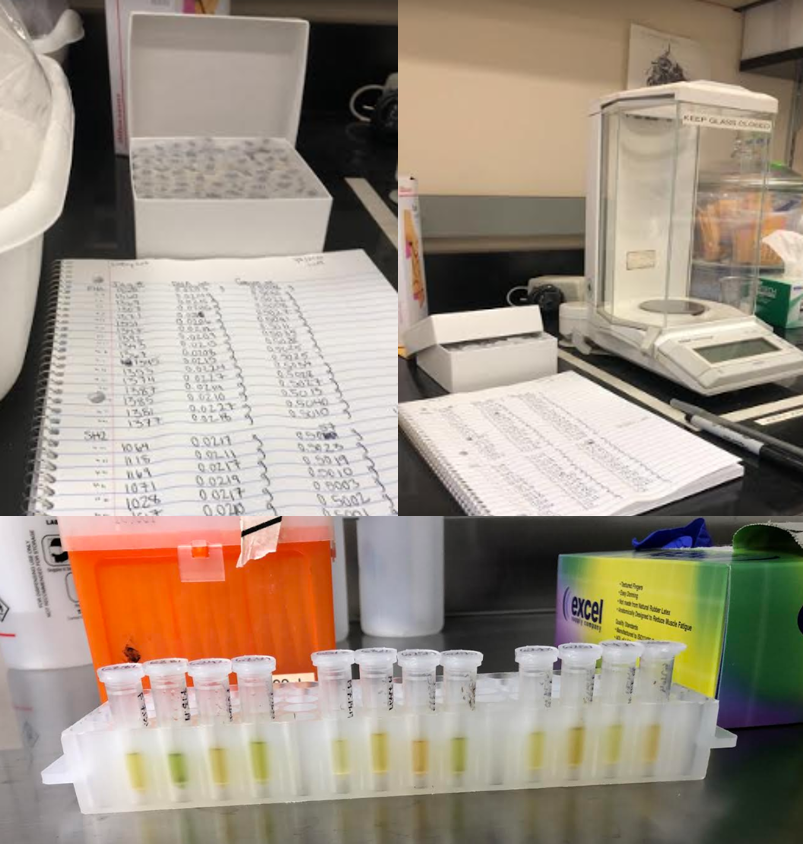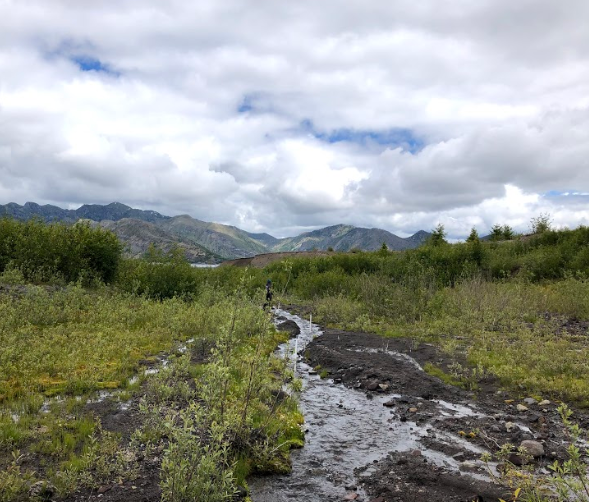
If an animal represented your research methods, what would it be?
“If I were to choose an animal that reflects my research style it would be a crab: I’m a bit protective of my work, always triple checking everything, moving backwards as much as I move forward.”
What attracted you to this research?
“I learned about Carri’s work when she sat as a panelist for an event my film class put on “Waters Connect Us: A conversation about protecting and restoring water with Indigenous Communities, Environmental Scientists, and Media Creators” in 2019. I was intrigued by the unique opportunity to study newly formed watersheds on Mount St. Helens. It seemed to intersect perfectly with my interests in restoration ecology and I was inspired by how this research could be applied to environmental justice.”

What do you love about MSH?
“I grew up in Kentucky, the land of soft, rolling hills. When I moved out West I knew only of the story my parents told about visiting the Mount St. Helens with my sister before I was born—how, when the curtains parted at the visitor center to reveal the volcano—my sister burst into tears, terrified by the destruction she had just seen on film. I always expected to feel that same fear. When I took my first steps through the Pumice plain, however, I was reminded of a quote from Robin Wall Kimmerer’s Braiding Sweetgrass that reads, “a basket knows the dual powers of destruction and creation that shape the world. Mount St. Helens knows of these powers, too, of course. The eruption laid bare the conditions for new life to take hold and the fields of wildflowers now stand as a gentle reminder that things do not end with tragedy; there is always another page.”

Do you identify as a Greener?
“I do, but I haven’t always. In identifying as a Greener, I’m grateful for the talented, patient professors I’ve worked with, the expansion of my worldview, and peers that helped me form a more comprehensive moral framework. There are so many incredibly unique opportunities at Evergreen and supporting students doing graduate-level research as an undergraduate is just one example of Evergreen’s strengths. For this and much else, I’m proud to call myself a Greener.”










